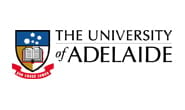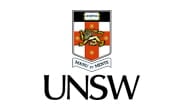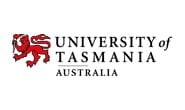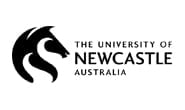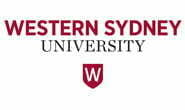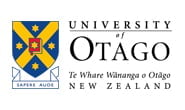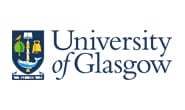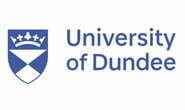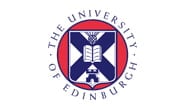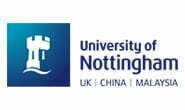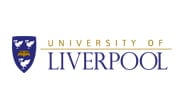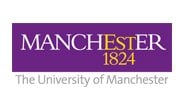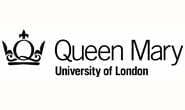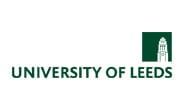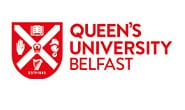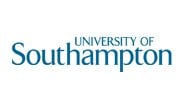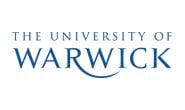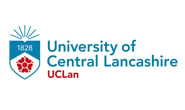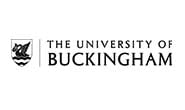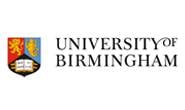ABOUT
The path towards becoming a doctor is long and challenging but one that sees no shortage of takers. It is a selfless calling, dedicated to the service of others and yet, is one of the most personally fulfilling career options to embark on.

Medicine Degree
To take up medicine, you need good grades coupled with total commitment to stay on the course. Hence, it is important that the decision to be a doctor is yours, not your parents’ or anyone else’s.
The IMU Medical programme focuses on Medical Sciences for the first 2.5 years. Students then proceed to undertake Clinical Training either at IMU’s Clinical Campuses in the southern part of Malaysia or at a Partner Medical School (PMS) overseas. The IMU awards the Bachelor of Medicine, Bachelor of Surgery degree – MBBS (IMU) – to students upon completion of the IMU 5-year Medicine programme while students who complete their degree at a Partner Medical School will be awarded with a degree from the Partner Medical School.
From August 2017, IMU has incorporated the United States Medical Licensing Examination (USMLE) Preparatory Course into the IMU medical curriculum across Semesters 1 to 10. This allows IMU medical graduates to prepare early for the USMLE leading to potential career opportunities in the United States of America. In addition, students will be given opportunities for clinical electives in selected hospitals in the USA to broaden their learning experience in different healthcare systems.
Overseas Clinical Electives
Students will have the opportunity of doing their clinical electives in selected hospitals in the USA in order to enhance their learning experience in different healthcare systems.

Key Facts
Medical Sciences Degree
The Bachelor of Medical Sciences (Honours) at IMU is a six-month programme that provides an opportunity for medical students to gain an understanding of research in a variety of areas.
The Bachelor of Medical Sciences (Honours), BMedSc (Hons) programme was initiated in 2003 and is an accredited 3 years honours degree. The first 2.5 years focus on the Medical Sciences as part of the IMU Medical programme (MBBS) in Bukit Jalil campus.
On completion, the Phase 1 MBBS students are eligible to spend an additional two (2) semesters to undertake a research project and submit a dissertation. The student will be supervised on the preparation of research proposal, designing and executing of research methodology using various scientific tools, data analysis, presentation and preparation of the dissertation and manuscripts for publication. In addition, there is a coursework covering various aspects of research methodology.
At the end of this programme, the student will be equipped with new knowledge and practical experience such as in the areas of:
This degree is a prerequisite for those who intend to transfer to Graduate Partner Medical Schools (PMS). It is also offered to those who are transferring to undergraduate PMS and Seremban Clinical Campus. It is also an option for students who wish to exit the programme with an honours degree in Medical Sciences.
Key Facts
Why Study Medicine at IMU?
An Established Private Medical and Healthcare University
IMU is Malaysia’s first and most established private medical and healthcare university with over 30 years of dedicated focus in healthcare education.
IMU achieved a Tier-6 rating in the SETARA ratings of Malaysian Universities and University-Colleges awarded by Malaysian Qualifications Agency (MQA).
Build Your Future Healthcare Professional Network
As IMU offers the widest range of healthcare programmes, our students are fully immersed in a vibrant community of students and practitioners from all healthcare fields.
This allows for the development of strong friendship amongst peers that will be the foundation of an extensive healthcare professional network upon graduation.
Largest Private Medical School in Malaysia
IMU’s MBBS programme was established in 1999 and to date has the highest number of faculty members, registered students and successful graduates of any other private medical schools in Malaysia.
The School has been re-accredited by Malaysian Qualifications Agency (MQA) and Malaysia Medical Council (MMC) for a maximum duration of 5 years (2015 – 2020).
Curriculum Benchmarked to International Standards
IMU’s medical curriculum has been developed to meet high international standards and is accepted by 21 international partner universities for credit transfer into their medical programmes.
The medical curriculum is not only benchmarked to meet high international standards but now it also provides a pathway for our graduates to train and work in the United States with the incorporation of the USMLE Step 1 Preparatory Course into the IMU medical curriculum across Semesters 1 to 10.
This is to allow future medical graduates to begin early preparation and be competent to sit for USMLE Step 1 examination that carves a path towards United States residency opportunities.
Better Preparation for Housemanship and a Career as a Doctor
With clinical exposure as early as Semester 1 and an intensive 6-month Senior Clerkship at Hospital Batu Pahat / Hospital Kluang in Semester 10 (unique in Malaysia), students with a MBBS (IMU) are better prepared for patient care, housemanship training and to become better doctors.
Programme Structure
Semester Contents
| Semester 1 | Semester 2 | Semester 3 |
|---|---|---|
|
|
|
| Semester 4 | Semester 5 | Semester 6 |
|---|---|---|
|
|
|
| Semester 7 | Semester 8 | Semester 9 |
|---|---|---|
|
|
|
| Semester 10 | ||||
|---|---|---|---|---|
|
||||
Entry Requirement
| Examinations | Requirements |
|---|---|
| A- Levels | BBB or ABC in ~Biology; and ~Chemistry; and ~Physics or Mathematics |
| STPM | cGPA 3.00 with BBB or ABC in ~Biology; and ~Chemistry; and ~Physics or Mathematics |
| Australian Matriculation | ATAR 80 including ~Biology; and ~Chemistry; and ~Physics or Mathematics |
| NCEA Level 3 | Average of 80% in ~Biology; and ~Chemistry; and ~Physics or Mathematics |
| Canadian Grade 12/13 | 80% aggregate in 6 subjects (with an average of 80% in ~Biology; and ~Chemistry; and ~Physics or Mathematics) |
| Unified Examination Certificate (UEC) | B4 in 5 subjects ~Biology; and ~Chemistry; and ~Physics; and ~Advanced Mathematics I; and ~Advanced Mathematics II |
| Australian University Foundation Programmes | 80% aggregate or ATAR 80 (with an average of 80% in 3 subjects ~Biology; and ~Chemistry; and ~Physics or Mathematics) AND attained 5Bs in Biology, Chemistry, Physics, Mathematics / Additional Mathematics and another subject at SPM / O-Level or its equivalent |
| Indian Pre-University | Average of 70% in all subjects (with an average of 70% in ~Biology; and ~Chemistry; and ~Physics or Mathematics)and Pass the National Eligibility cum Entrance Test (NEET) Exam |
| Ministry of Education Matriculation # | Overall cGPA 3.00 [with cGPA 3.00 (out of 4.00) in Biology; and Chemistry; and Physics or Mathematics] AND attained 5Bs in Biology, Chemistry, Physics, Mathematics/ Additional Mathematics and another subject at SPM/O-Level |
| International Baccalaureate (IB) | Entry Requirement from 2024 33 points with a minimum score of 5 in each Biology, Chemistry & Mathematics at Higher Level (HL) |
| American High School Diploma with Advanced Placement (AP) | – |
| Foundation Studies # | IMU Foundation in Science Overall cGPA 3.00 [with cGPA 3.00 (out of 4.00) in Biology; and Chemistry; and Physics or Mathematics] AND attained 5Bs in Biology, Chemistry, Physics, Mathematics/ Additional Mathematics and another subject at SPM/O-Level *Foundation in Science or equivalent from other institutions will be subjected to the Dean’s approval on a case by case basis* |
| Degree | BSc in related field: cGPA 3.00 |
| Diploma | Diploma in Health Sciences – cGPA 3.50 and provided duration is not less than 5 semesters or 2.5 years in the same accredited institution and attained 2Bs each in Biology, Chemistry or Physics, and 3Cs in English, Mathematics or Additional Mathematics and another subject at SPM / O-Level |
English Language Requirement
| MUET* | Band score of 4; or (For Malaysian students) |
| IELTS | Overall band score of 6.5; 0r |
| Cambridge English : Advanced (CAE)* | Overall score of 176; or |
| Cambridge English : Proficiency (CPE)* | Overall score of 176; or |
| Cambridge Linguaskill* | Overall score of 180; or |
| Pearson Test of English (PTE)* | Overall score of 63; or |
| Credit Transfer | IELTS Overall band score of 7.0 |
* ONLY applicable for those who are completing the entire degree at IMU, Malaysia
Note
Please note that achieving the minimum Entry and English requirements as stated does not guarantee you admission into any of IMU’s programmes.
Please refer to our Student Admissions Policy for more information.
Application and Registration Fees
| Fee | Malaysian Student (RM) | International Student (RM) |
|---|---|---|
| Application Fee | 300 | 950 |
| Registration Fee | 1300 | 3,400 |
| Refundable Caution Deposit | 2,000 | 2,000 |
Fee Structure
malaysian student
| Total Duration (years) | Years | Total Semesters | Tuition Fee Per Semester (RM) | Transfer Fee Per Semester (RM) | Tuition Fee Per Year (RM) | |
|---|---|---|---|---|---|---|
| Bachelor of Medicine & Bachelor of Surgery (MBBS) | ||||||
| At IMU University | ||||||
| Phase 1 & Phase 2 | 5 | 5 | 10 | 59,750 | – | 119,500 |
| Degree from Partner University | ||||||
| Phase 1 at IMU University | ||||||
| 2½ | 2½ | 5 | 59,750 | 6,000* | 119,500 | |
| Phase 2 at Partner Medical School (PMS) | ||||||
| Country | Average Total Duration (years) | Average Years | Total Semesters | Tuition Fee Per Year * | ||
| Australia | 5 – 5½ | 2½ – 3 | 5 – 6 | AUD75,000 – 87,360 | ||
| Malta | 5½ | 3 | 6 | EUR37,500 | ||
| New Zealand | 5½ | 3 | 6 | NZD101,236 | ||
| United Kingdom | 5 – 5½ | 2½ – 3 | 5 – 6 | GBP42,700 – 67,500 | ||
International student
| Total Duration (years) | Years | Total Semesters | Tuition Fee Per Semester (RM) | Transfer Fee Per Semester (RM) | Tuition Fee Per Year (RM) | |
|---|---|---|---|---|---|---|
| Bachelor of Medicine & Bachelor of Surgery (MBBS) | ||||||
| At IMU University | ||||||
| Phase 1 & Phase 2 | 5 | 5 | 10 | 67,250 | – | 134,500 |
| Degree from Partner University | ||||||
| Phase 1 at IMU University | ||||||
| 2½ | 2½ | 5 | 67,250 | 6,000* | 134,500 | |
| Phase 2 at Partner Medical School (PMS) | ||||||
| Country | Average Total Duration (years) | Average Years | Total Semesters | Tuition Fee Per Year * | ||
| Australia | 5 – 5½ | 2½ – 3 | 5 – 6 | AUD75,000 – 87,360 | ||
| Malta | 5½ | 3 | 6 | EUR37,500 | ||
| New Zealand | 5½ | 3 | 6 | NZD101,236 | ||
| United Kingdom | 5 – 5½ | 2½ – 3 | 5 – 6 | GBP42,700 – 67,500 | ||
| Country | Estimated Living Costs (Per Year) |
Exchange Rate (As of Dec 2023) |
|
|---|---|---|---|
| Estimated Living Cost (Per Year) | Australia | AUD 21,000 – AUD 30,000 ≈ RM 65,900 – RM 94,200 | AUD 1 ≈ RM3.14 |
| Canada | CAD 28,000 ≈ RM 98,000 | CAD 1 ≈ RM3.50 | |
| China | RMB 85,000 ≈ RM 56,100 | RMB 1 ≈ RM0.66 | |
| Ireland | EUR 12,000 ≈ RM 62,000 | EUR 1 ≈ RM5.17 | |
| New Zealand | NZD 22,000 – NZD 26,000 ≈ RM 64,500 – RM 76,200 | NZD 1 ≈ RM2.93 | |
| United Kingdom | GBP 10,000 – 22,700 ≈ RM60,000 – RM 136,200 | GBP 1 ≈ RM6.00 | |
| United States of America | USD 16,000 ≈ RM 75,800 | USD 1 ≈ RM4.74 | |
| Kuala Lumpur, Malaysia | RM36,000 | RM36,000 |
Course Duration
| DURATION OF MEDICAL PROGRAMME | |||
|---|---|---|---|
| UNDERGRADUATE ENTRY Full duration of study: 4½ to 5½ years (depending on the University) |
|||
| Phase 1 (IMU) | Phase 2 | Total | |
| AUSTRALIA | |||
| University of Adelaide, Australia | 2½ years | 3.5 years | 6 years |
| University of Newcastle, Australia | 2½ years | 3 years | 5½ years |
| University of Tasmania, Australia | 2½ years | 3 years | 5½ years |
| Western Sydney University, Australia | 2½ years | 3 years | 5½ years |
| NEW ZEALAND | |||
| University of Otago, New Zealand | 2½ years | 3 years | 5½ years |
| UNITED KINGDOM | |||
| University of Aberdeen, Scotland | 2½ years | 3 years | 5½ years |
| University of Birmingham, England | 2½ years | 3 years | 5½ years |
| University of Buckingham, England | 2½ years | 2½ years | 5 years |
| University of Central Lancashire, England | 2½ years | 3 years | 5½ years |
| University of Dundee, Scotland | 2½ years | 3 years | 5½ years |
| University of Edinburgh, Scotland | 2½ years | 3 years | 5½ years |
| University of Glasgow, Scotland | 2½ years | 3 years | 5½ years |
| University of Leeds, England | 2½ years | 3 years | 5½ years |
| University of Liverpool, England | 2½ years | 3 years | 5½ years |
| University of Manchester, England | 2½ years | 3 years | 5½ years |
| University of Nottingham, England | 2½ years | 2½ years | 5 years |
| Queen Mary University of London, England | 2½ years | 3 years | 5½ years |
| Queen’s University of Belfast, Northern Ireland | 2½ years | 3 years | 5½ years |
| University of Southampton, England | 2½ years | 3 years | 5½ years |
| DURATION OF MEDICAL PROGRAMME | |||
|---|---|---|---|
| GRADUATE ENTRY Full duration of study: 4½ to 6½ years (depending on the University) |
|||
| Option A | Phase 1 (IMU) | Phase 2 | Total |
| AUSTRALIA | |||
| University of New South Wales, Australia ##,### | 3 years | 3 years | 6 years |
| UNITED KINGDOM | |||
| University of Warwick, England# | 2½ or 3 years | 3 years | 5½ or 6 years |
UNDERGRADUATE ENTRY
If you choose this route, you will compete for a place in every PMS, except UNSW and UW.
GRADUATE ENTRY
For University of Warwick, student with a first degree on entry may transfer after 2½ years. Students without a first degree will have to spend another year to complete the IMU Bachelor of Medical Sciences (Hons) to be eligible to transfer. The IMU Bachelor of Medical Sciences (Hons) is one year programme. Please click HERE for more information on this programme.
Matching Process for Students Going to Partner Medical Schools (PMS) Abroad
The matching process is carried out early in the fifth semester. It is computerised and completely impartial. The students state their choice of PMS in strict order of preference. The PMS also rank the students based on their academic performance, student attributes and involvement in co-curricular activities. The computerised programme gives 5 times greater weighting to the students’ choice over the PMS ranking of students.
PATHWAY TO THE PARTNER MEDICAL SCHOOL (PMS) THROUGH A GRADUATE ENTRY
These graduate medical schools normally only admit candidates with a first degree eg BSc into their 4-year programme. Because of the unique nature of the IMU Bachelor of Medical Sciences (Hons) degree, candidates with this degree are given credit for exemption to part of the 4-year course. This can result in considerable savings in tuition fees and living expenses overseas.
PATHWAY TO THE PARTNER MEDICAL SCHOOL (PMS) THROUGH A UNDERGRADUATE ENTRY
This is the current PMS route that the majority of our medical students take. You will be matched to a Partner Medical School for another 2½ to 3 years upon successfully completing Phase 1.
Students with citizenship and permanent resident status in Australia, New Zealand, Ireland and United Kingdom are advised to check with the Admission Department on their eligibility to apply.
* The list of Partner Medical Schools is subject to change from time to time.
The IMU is not responsible for housemanship training.
Partner Universities
As an assurance of a total commitment towards quality education in medicine, the IMU maintains its relationship with many partner universities in Australia, New Zealand, and United Kingdom. The list of partner universities is subject to change. Eligible graduates from IMU’s medicine programme can enrol into King’s MSc in MedTech Innovation & Entrepreneurship at King’s College London, United Kingdom.
Australia
new zealand
united kingdom
Views from Our Community

Shahkeerah Kamarul
Student, Medicine
IMU introduces its medical degree that upholds its holistic approach and has garnered a lot of attention from students globally. As a medical student from one of the top medical schools in Malaysia, I am very proud to be accepted in this university that provides a curriculum which trains students to apply critical knowledge, thus preparing us to be holistic and competent doctors in the future. They divide IMU Medical degree into two stages, which are the Medical Sciences and Clinical Sciences. IMU curriculum in medical sciences specifically are very thorough that allow students to be on par with students of top universities in the world, especially those in the United States of America as it amalgamates curriculum from the USMLE. My experience as a preclinical (Medical Sciences) student who has undergone these changes is very much challenging at first. However, the adequate resources provided by the School of Medicine has helped me to boost my grades, especially in critical times like this. From my experience throughout my Medical Sciences years, IMU has definitely prepared us not only theoretically but also practically to face our Clinical Sciences years with multitudinous efforts such as excellent clinical skills sessions, hospital attachments and also clinical case discussions under the tutelage of committed lecturers, it has shed some light on our curiosity of the upcoming clinical years. Although facing a challenging year with the recent pandemic, IMU has always prioritised their students and is trying to offer the best solutions that favour students’ current situation. I should award the lecturers with the highest praises, as they are always accessible throughout the day, even on weekends. Some of them will go beyond their working hours to entertain the needs of the students in this challenging time. The School of Medicine has always been supportive of student development, especially in leadership skills by allowing students to take part in various conferences, competitions and leadership programmes and be part of the event as a main committee alongside with reputable professors from all over the world. These experiences somehow help students to grow beyond the medical field, shaping us to be an all-rounder. If I were to turn back time and choose again, I would definitely choose IMU again and again. I hope to see more IMU Alumni engraving their names on the international plaque.

Tee Chen Giap
Student, Medicine
The curriculum emphasises on clinical exposure even during the early pre-Clinical phase of training, which eases the integration of pre-clinical students into their clinical phase of training via hospital visits, exposure rotations in various departments and simulated clinical learning. Online resources like Up-To-Date and AMBOSS also complements our learning within the hospital environment, off-campus and on campus sessions as well. Finally, IMU provides various avenues for students to strive to be better versions of themselves via clubs, societies, conferences, competitions and networking opportunities which further enriched my student experience. All in all, I am glad be part of the School of Medicine in IMU and I am excited to see new frontiers IMU will go into for the coming years.

Dr Sushela Devi Somanath
Senior Lecturer and Head of Department, Microbiology Department
I am with IMU since 1994 and at that time it was just a fledgling university amongst the other bigger universities in the country. It started as a little seed in the minds of its founders- Tan Sri Dr Kamal Salih, Dr Mei Ling Young, Dr Saidi Hashim and Prof Ong Kok Hai. Together they roped in two leading medical educationists -Professor Ian Hart and Professor Ron Harden and a STAR was born. Together with our partner schools, we built a one of its kind medical university in Malaysia. We literally started off with very few amenities, a small building, and an even smaller number of staff. However, managers, academics and non- academics alike worked towards a common goal, beating the odds, and forging ahead to create a unique learning environment which would allow our students and faculty to thrive and grow. Hence, we have arrived at a good place today and are determined to move forward together with our partner schools and our students. IMU is growing day by day and soon we will be having our very own hospital. This fills me with a sense of awe as to how we began and to what we have now achieved. I have a deep respect for how our faculty and support services have bent over backwards to serve our students. In all my numerous years, I have seen many students walk through these corridors and emerging as dedicated professionals. It fills us all with pride to see them as responsible, caring, and dedicated professionals. I hope that the School of Medicine continues to surge ahead with new innovations in teaching and learning and a commitment to create a better tomorrow for our students.
Latest News & Stories
Frequently Asked Questions
What is the structure of the IMU medical programme?
The IMU medical programme is structured in two phases: Phase 1, Medical Sciences and Phase 2, Clinical Training.
Phase 1 (Medical Sciences)
This phase of 5 semesters (2½ years) focuses on the Medical Sciences and is undertaken at the University’s campus in Bukit Jalil. Completion of Phase 1 in Malaysia enables all students to become familiar with local health conditions and facilities in rural and urban settings. From the second Semester, students gain early clinical exposure at Hospital Tuanku Ja’afar, Seremban, Kuala Kubu Baru Hospital and other government health centres and private clinics in Negeri Sembilan and Selangor.
Phase 2 (Clinical Training)
On completion of Phase 1, students proceed to Phase 2 which focuses on clinical training. Students may choose to undertake this training either at the IMU Clinical Campus in Seremban or at a Partner Medical Schools (PMS) overseas. The overseas duration varies from 2 to 3 years. Note: Students are to choose where to take their Phase 2 option at the time of application and this option is indicated on the letter offering a place.
What are the aims and key features of the local MBBS (IMU) degree?
Through its teaching, the IMU aims to produce “reflective medical practitioners” and “caring doctors”. Students who wish to undertake a medical programme completely in Malaysia can join the IMU Clinical Campus in the Seremban subcampus for the final 2½ years.
Key features of IMU programme include:
- An adaptive curriculum
- Outcome-based education
- Technology-driven learning
- Dynamic, experienced and eminent faculty
- Clinical training in Hospital Tuanku Ja’afar, Seremban
- Regular assessments and feedback
- Well-equipped Skills Centre and a Learning Resource Centre comprising of a library, medical museum and e-learning resources.
What are the teaching/learning approaches used?
The IMU has an integrated systems-based curriculum for its medical programme and uses a variety of approaches to its teaching and learning activities. These include lectures, problem-based learning (PBL), practical classes, independent learning, clinical skills sessions and clinical training with patient contact at the Hospital Tuanku Ja’afar, Seremban and other health clinics in Negeri Sembilan and Selangor.
The early exposure of students to clinical experiences emphasises the importance of the basic sciences to its clinical application and serves to stimulate students’ interest in medicine.
Note: Students are to choose where to take their Phase 2 option at the time of application and this option is indicated on the letter offering a place.
What is the duration of the IMU medical programme?
Please refer to Partner Medical School (PMS) Enrolment.
What are the semester contents?
Semester contents are available in the programme brochure [Download Brochure]
What are the semester contents for Phase 2 (Clinical Training) in the IMU Clinical Campus?
Semester contents are available in the programme brochure [Download Brochure]
When do students get clinical exposure?
Experiential learning occurs in the real clinical settings or simulation. Students are exposed to incremental clinical experiential learning from Year 1 with opportunities to experience, participate and evaluate the full spectrum of care from primary to tertiary prevention. The early exposure emphasizes the importance of clinical application of basic science, focusing on wellness and disease prevention and helps to stimulate students’ interest in Medicine.
What is the aim of the clinical exposure?
The aim of the clinical exposure is to ensure that students gain sufficient interviewing and examining skills before transferring to the clinical course provided by the IMU Clinical Campus or the Partner Medical Schools (PMS). In addition, they will obtain experience in the common presentation of diseases in Malaysian patients. This is important for their practice of medicine in Malaysia.
Where are the IMU Clinical Campuses?
IMU has four clinical campuses, one in Seremban, one in Batu Pahat, one in Kluang and the other in Kuala Pilah. The IMU Clinical Campus in Seremban is a purpose-built 5-storey teaching block located next to Hospital Tuanku Ja’afar, Seremban. This building with a built-up area of about 62,000 sq ft is linked to the Hospital via a walkway.
Hospital Batu Pahat became an additional teaching facility for IMU in 2003 and currently Semester 10 students undergo their 6 months of Senior Clerkship at Hospital Batu Pahat. During this semester, students work in wards as junior house officers under the supervision of senior clinicians, in order to prepare them for their house officer posting. This is important for the students as they will be provided the opportunity of incremental responsibility for independent patient management.
In 2008, Hospital Tuanku Ampuan Najihah (HTAN) in Kuala Pilah, Negeri Sembilan was sanctioned by the Ministry of Health as an additional teaching hospital for the IMU. An IMU teaching resource was set-up at a building near the hospital.
What are the teaching facilities in the Clinical Campus?
The teaching facilities include:
- Airway Laboratory
- Library
- On-call Rooms
- Clinical Skills Unit
- Simulation Ward
- Problem-based Learning Rooms(PBL)
- Conference Room
What teaching hospitals/clinics are used by the IMU?
Besides Hospital Tuanku Ja’afar, Seremban, the other teaching hospitals used are Hospital Port Dickson, Hospital Batu Pahat, Hospital Kuala Pilah, Hospital Kuala Kubu Bharu, Hospital Gombak and Hospital Kluang. Students are also taught at district hospitals as well as community health clinics, government health clinics and family practice clinics in Negeri Sembilan and Selangor.
Who are the teaching staff?
Most of the academic staff (which include local and overseas trained lecturers) are full-time. Through arrangements with our Partner Medical Schools (PMS), experienced academic staff come as visiting lecturers to teach specialised subjects on a rotational basis at IMU. In addition, experienced academicians and clinicians from Malaysian medical schools and research institutes, as well as consultants in private practice are also invited to teach the students.
What is the medium of instruction?
The medium of instruction is English. Students who come from a system of education in which the medium of instruction is not English are strongly recommended to improve their proficiency in English by making their own arrangements to attend additional English Language classes before entering the IMU.
It is compulsory for students to attend a course in Bahasa Malaysia as the national language is used in both community health work and the practice of medicine in Malaysia.
What happens after I graduate as a doctor?
All medical graduates have to complete an internship or housemanship after graduation. This can be done in Malaysia or in some overseas countries. Presently, international students are not able to do their housemanship in Malaysia.
The IMU student who graduates from any of the Partner Medical Schools (PMS) can apply to the Ministry of Health for a housemanship position in Malaysia. In Malaysia, the internship is for 2 years.
Those who graduate from the UK can apply for a house officer position there. Graduates from Ireland can apply for housemanship positions in Ireland or take the Proficiency & Language Assessment Board (PLAB) examination and apply to work in the UK.
Application to do housemanship overseas is subject to the regulations of the overseas country.
How can I do postgraduate training overseas?
Doctors who have completed their house officer positions in the UK may apply to work as Senior House Officers (SHO) in the UK and sit specialist examinations e.g. membership/fellowship of the various medical professional colleges in the UK or Ireland.
In the United States, when you apply for an internship position, you are also applying for a residency (postgraduate) position.
Application to do postgraduate training overseas is subject to the regulations of the overseas country.
Do I have to serve the Malaysian Government?
It is compulsory for all Malaysian doctors who want to practise in Malaysia to serve the Government for two (2) years.
How can I undertake postgraduate training in Malaysia?
The present programme for postgraduate specialist training for doctors has been on-going for more than 20 years. Various Malaysian public Universities run the professional Masters programme, which is a four-year training programme. Many Malaysian doctors who attend the local course also sit the membership examinations of the UK colleges and thus end up with postgraduate qualifications from the UK as well.
How do I register to work as a doctor?
The Malaysian Medical Council (MMC) is the professional body in Malaysia which regulates and issues the “Annual Practicing Certificate” (APC) to all doctors.
All applications for registration and for renewal of APC are made to the MMC. The MMC is also responsible for gazetting doctors as specialists.
When should I apply?
You can apply using your forecast or actual exam results.
Who will award the medical degree?
The IMU will award the medical degree of MBBS (IMU) to students in their Clinical School. This degree is recognised by the Malaysian Medical Council (MMC) and accredited by the Malaysian Qualifications Agency (MQA) formerly known as National Accreditation Board (Lembaga Akreditasi Negara or LAN). The degree is listed in the World Health Organisation (WHO) directory of medical schools.
The Partner Medical Schools (PMS) will award degrees to students in their respective training programmes. Degrees from these schools are recognised internationally and locally by the Malaysian Medical Council (MMC) for full registration.
When do I attend a student interview?
All applicants who have pre-university qualifications that meet IMU’s minimum requirements have to attend an interview. The interview is to gauge the students’ aptitude and motivation for pursuing a career in Medicine as well as communication skills in English. Students will be informed of the date and time of interview after the application forms and all other necessary documents are received by the IMU.
What should a potential student do to prepare for the medical training?
All potential candidates are advised to try and obtain practical experience related to their intended career:
(a) Voluntary work in charitable organisations, eg. Spastics Home
(b) Hospital/clinic/pharmacy attachment for a period of 4 to 6 weeks
(c) Talk to students and practitioners about the profession and life as a student.
Compulsory subjects
Effective September 2013, the Ministry of Higher Education requires all institutes of higher education to conduct compulsory modules known as Mata Pelajaran Pengajian Umum (MPU) / General Studies Subjects for all undergraduate students. The Ministry of Higher Education requires students in tertiary education to undertake and pass five (5) MPU modules from Categories U1-U4 as a prerequisite to the award of a 1st degree. All Malaysian and international students must enrol, undertake, and pass the modules. The MPU modules, offered to both Malaysians and international students are standardised compulsory modules for both public and private institutes of higher learning.
Does IMU accept international students?
The IMU welcomes international students. International students applying for the medical programme are required to check with the respective professional bodies in the countries they wish to work in on accreditation issues.
Have a Question? Ask Us
Interested in Applying for One of Our Programmes?
Having Issues with Your Online Application Process?
Need Assistance?
A Word from the Dean
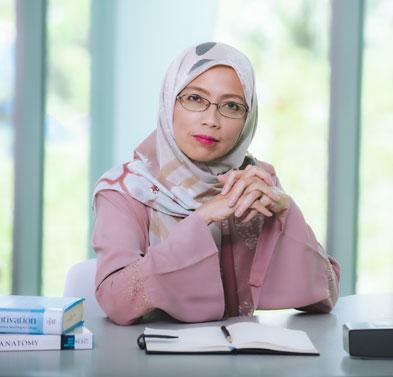
PROF SHARIFAH SULAIHA BINTI SYED AZNAL
Dean, School of Medicine
MBChB (Glasgow), M Med (O&G) (UKM), PGCert Med Edu (Dundee), AMM.
“The medical programme at IMU has an international reputation for excellence and innovation. In collaboration with our Partner Schools across the world, students have the opportunity to train as truly global health practitioners. Medicine is a challenging career path that requires dedication and hard work but offers the reward of knowing that you are using what you learn to help people and communities in their time of most need.”



